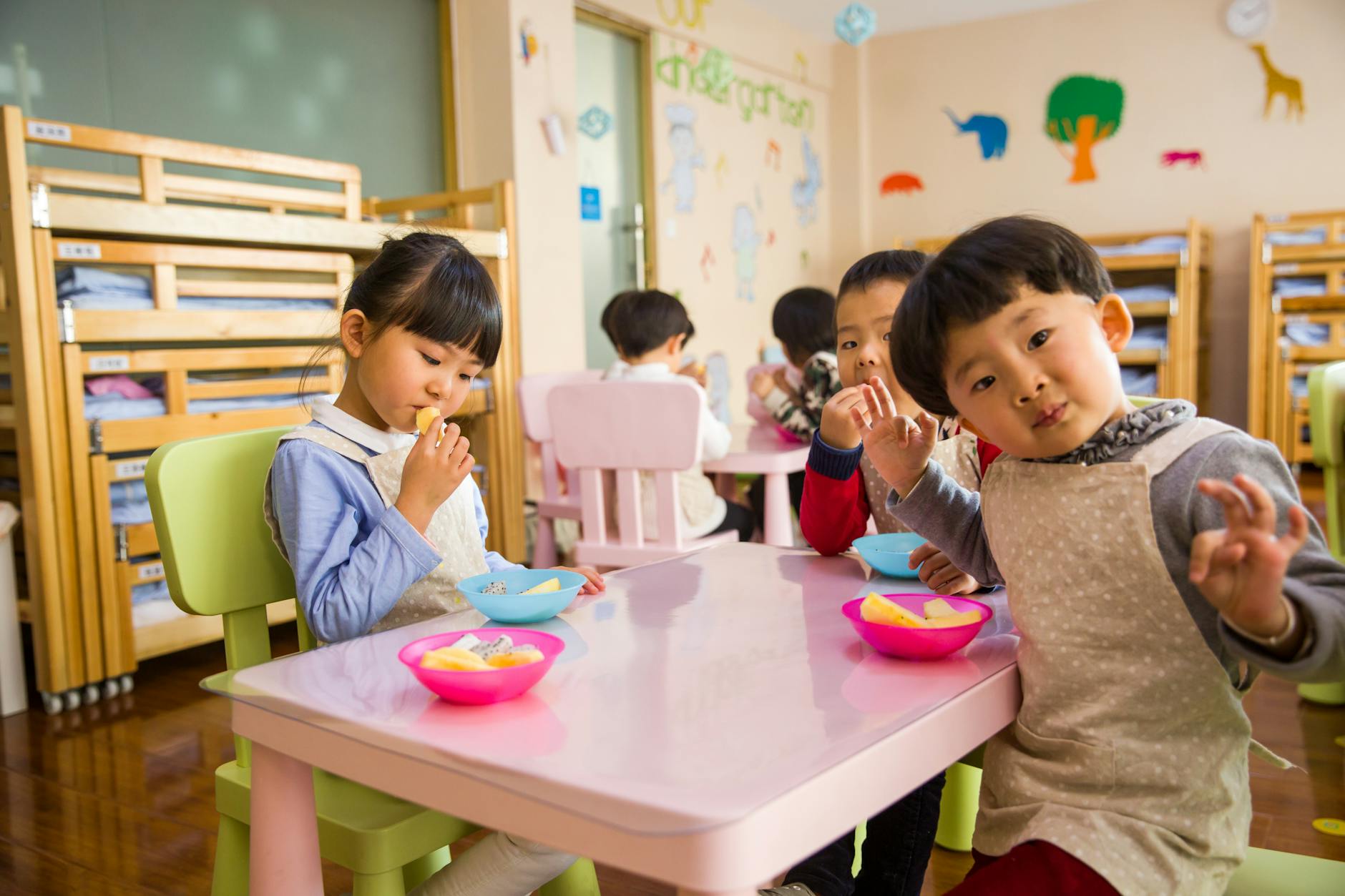How to Elevate Team Interaction Through Unique Experiences in the United States

Unconventional Team-Building Activities
In the quest to make corporate training sessions more engaging, unconventional team-building activities in New York can significantly enhance team interaction. Activities like pottery classes NYC offer a fresh approach to team-building by fostering creativity and collaboration. Picture your team working together in a studio, crafting unique pieces and sharing laughs—this not only promotes a sense of unity but also allows participants to express themselves in a non-traditional setting.
Similarly, cooking classes NYC can serve as an exciting alternative to the standard team-building exercises. Preparing a meal together encourages communication and teamwork, essential elements in any professional environment. The experience of creating a dish from scratch can improve problem-solving skills, as participants navigate recipes and adapt to challenges in real time.
Both of these activities align well with the structured yet innovative goals of Boston's financial training centers in the Seaport District. By guiding employees through these creative workshops, you empower them to take on different roles within a team, ensuring a more cohesive unit that can tackle corporate challenges strategically. These experiences can be integrated into your offerings, making your training sessions not only informative but also memorable, thereby supporting Oliver’s mission of enhancing employee development.
Enhancing Communication Skills
Role-Playing Scenarios
In the bustling environment of Boston's Financial District, honing team communication is vital. Consider role-playing scenarios as a practical strategy to sharpen essential skills. These exercises simulate real-world situations, enabling employees to practice spontaneous responses and situational judgment. For instance, hosting sessions focusing on handling customer complaints or peer negotiations can be insightful. These activities are not merely about acting but are structured to reflect tasks employees encounter daily, reinforcing both their empathy and problem-solving skills. As an experience gift card option, these scenarios provide a memorable and educational opportunity that aligns well with professional standards.
Building Active Listening
Active listening goes beyond hearing words. It's about comprehending, interpreting, and responding thoughtfully. You can enhance this vital skill through strategic, well-managed training exercises. Activities like reflective listening sessions, where participants repeat back what they’ve heard before responding, can help cultivate this skill. In Boston's training centres in the Seaport District, exercises that incorporate both verbal and non-verbal cues are options that offer real benefits in officer-worker interactions.
Fostering Open Discussions
Creating a safe space for communication is paramount. Encourage open dialogues where team members feel comfortable expressing thoughts and ideas without fear of judgment. Facilitating regular networking events at the Boston Convention and Exhibition Center can promote this openness, supporting natural, fluid conversation among peers. Additionally, consider implementing structured discussion sessions with specific prompts or themes, allowing employees to share insights and learnings. It's not just about bachelorette party ideas or casual get-togethers, but structured events that elevate communication within the team.
Cultivating Leadership Qualities
Workshop on Decision-Making
Incorporating decision-making workshops into your training sessions can be a game-changer. Imagine leveraging real-world scenarios or role-playing exercises where your team can practice and refine their problem-solving skills. This can be particularly impactful in a financial setting, where developing a strategic mindset is crucial. For instance, using case studies or simulation games can provide a controlled environment for decision-making, encouraging participants to weigh risks and benefits carefully. These exercises contribute to understanding the intricate balance between swift decision-making and comprehensive analysis, foundational skills in leadership.
Encouraging Ownership Mindset
An ownership mindset thrives on accountability and initiative. Encouraging team members to view projects as their personal responsibility can foster leadership qualities. You might consider activities like paint and sip NYC sessions, which allow employees to coordinate and execute creative tasks, blending responsibility with creativity. The key here is to let the participants make meaningful choices and experience the consequences firsthand, reinforcing the value of initiative and responsibility. In my own experience, offering team members the chance to lead small projects or initiatives within their comfort zones can stimulate ownership and leadership growth.
Navigating Through Feedback
Feedback is a powerful tool in leadership development. Structured feedback sessions can help individuals grow and adapt, improving overall team dynamics. The focus here is on constructive, balanced feedback that serves as an opportunity for learning and advancement. By implementing role-play scenarios or peer review sessions, such as those conducted in baking classes, teams can practice delivering and receiving feedback constructively. Experiencing this in a supportive environment, like training centers in the Seaport District, empowers team members to understand diverse perspectives and apply feedback effectively, ultimately refining leadership capabilities.
Planning Memorable Events
When planning memorable corporate events, the selection of a venue is crucial for fostering connections and engagement. Choose venues that are not only convenient but also inspiring and conducive to networking. For instance, considering locations proximate to team building activities NYC or destinations that offer rich, interactive experiences can amplify the overall impact. Another essential element is to include engaging ice-breaker activities that encourage interaction among participants. These could range from trivia games to mini-adventure challenges, designed to break down barriers and stimulate communication.
Seamless execution is also key to ensuring your event runs smoothly. To achieve this, clearly delegate responsibilities among the team and provide them with all necessary resources and guidelines ahead of the event. Develop a comprehensive timeline detailing each segment of the event, complete with allocated time slots, to avoid potential bottlenecks. Equipment checks and test runs are vital to mitigate technical issues during the actual event.
As someone committed to enhancing employee engagement, tapping into innovative ideas like experience gifts can add a unique touch to your corporate events. These can be personalized to suit your team's preferences, offering them a chance to bond over shared activities in a structured setting. By integrating such elements, you can ensure that your event not only meets the professional standards expected but also empowers your team with memorable experiences.
Best Practices for Effective Engagement
Aligning Activities with Strategic Goals
To successfully integrate unique experiences into your team-building framework, it’s pivotal to align activities with your overarching strategic goals. Think about what's truly essential for your team: is it innovation, communication, or leadership? For those working in offices in the Boston Financial District, you might consider team activities that enhance collaborative problem-solving, enabling tight-knit teams to tackle market challenges together.
Measuring Success Metrics
Increased employee engagement can be a nebulous concept unless supported by concrete metrics. To effectively measure success, employ a mix of qualitative and quantitative metrics. Success can be gauged through pre- and post-event surveys and by analysing engagement metrics like participation rates. In essence, leverage the close-knit community feel of training centers in the Seaport District to foster candid feedback, providing valuable insights that can guide future endeavors.
Upholding Professional Standards
While creativity in team-building is essential, maintaining professional standards is equally crucial. Whether you’re planning events or team building activities in South Florida, ensuring a seamless blend between fun and professionalism will set the right tone. Ensure that facilitators are well-versed in the company’s ethos and objectives, mirroring the professionalism you might find at networking events at the Boston Convention and Exhibition Center. This balance not only uplifts morale but also instills a culture of respect and accountability.
Managing these aspects strategically ensures your team not only grows stronger but also functions more cohesively, preparing them for future challenges.


